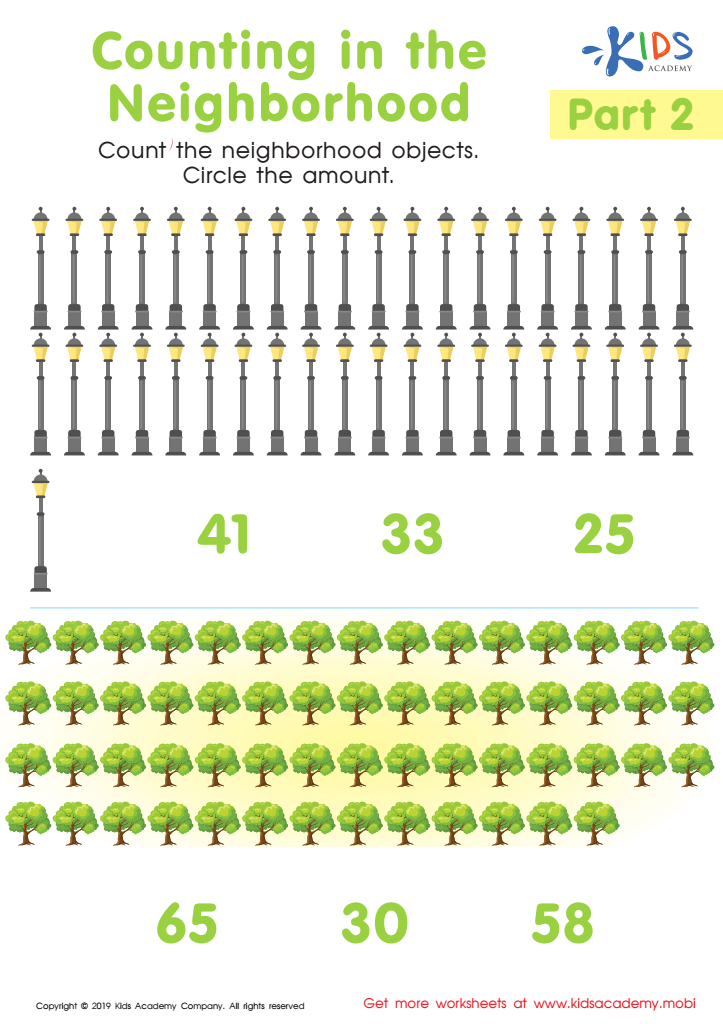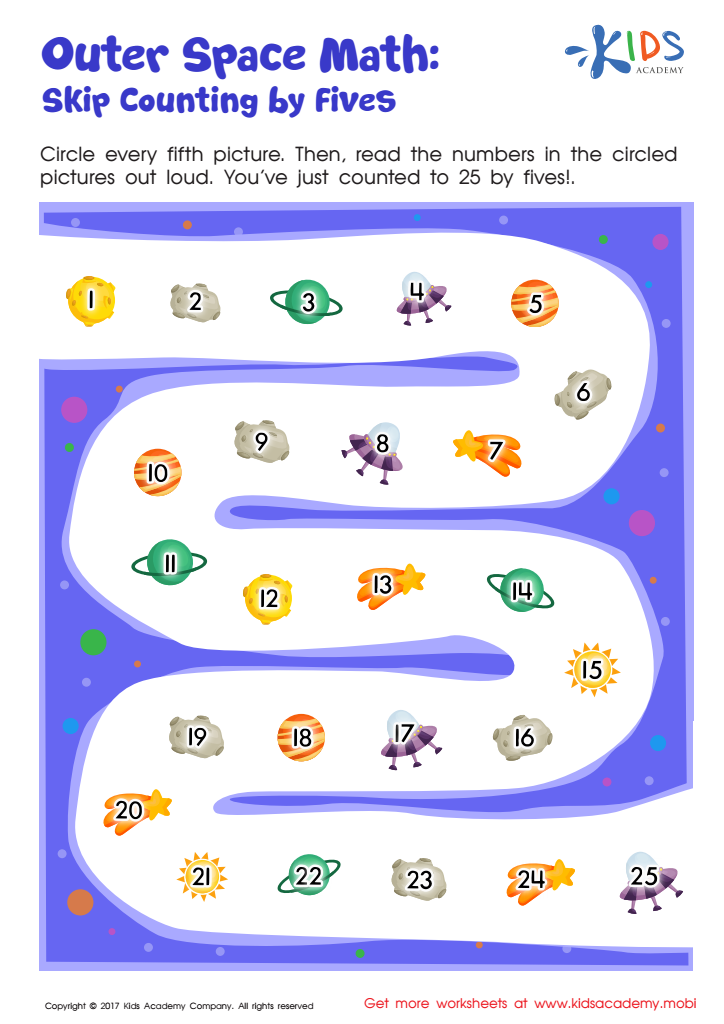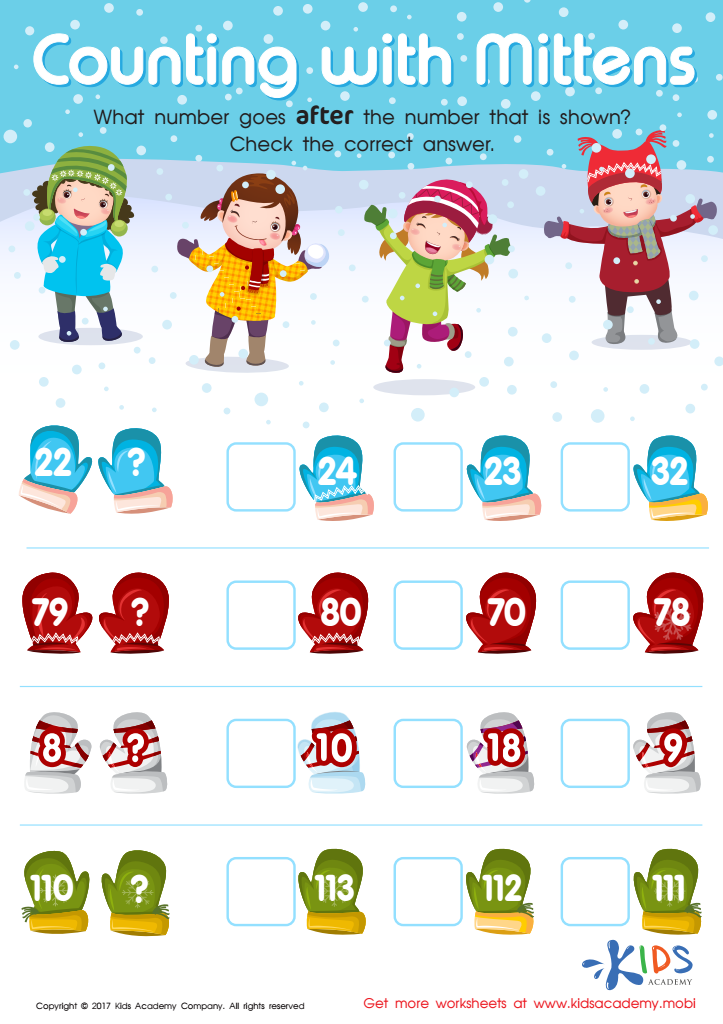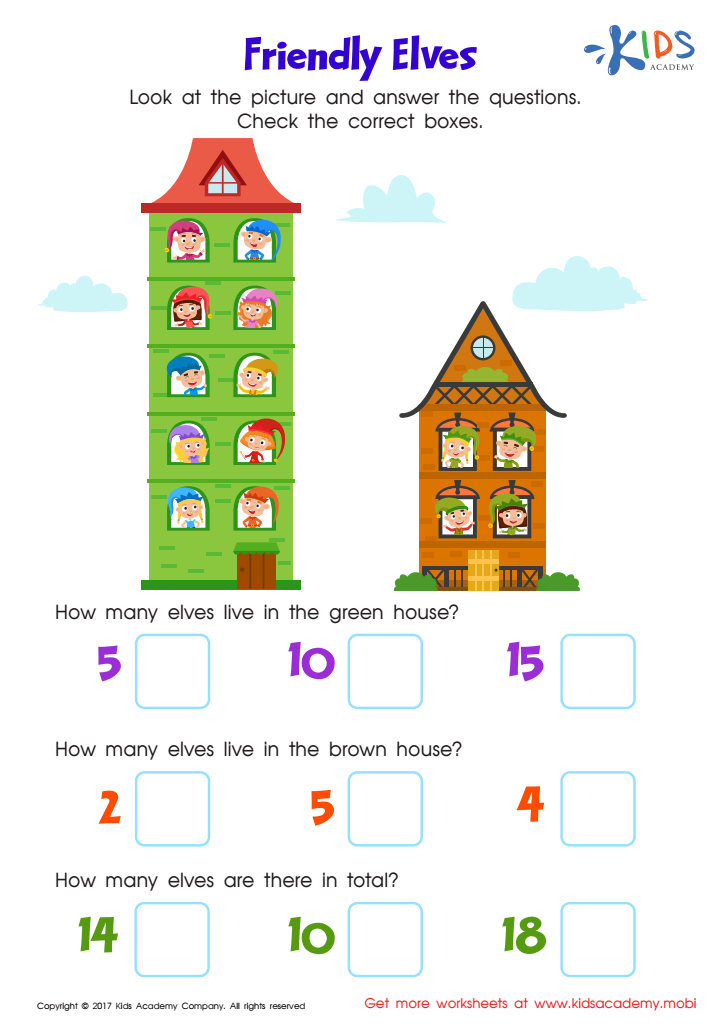Addition Practice Numbers up to 100 Worksheets for Ages 5-9
4 filtered results
-
From - To
Discover engaging and effective "Addition Practice Numbers up to 100 Worksheets for Ages 5-9" at Kids Academy! Our expertly designed worksheets are perfect for young learners to build foundational math skills and confidence. With a variety of fun and interactive exercises, children will enhance their addition abilities, working with numbers up to 100. These printable worksheets cater to different learning styles, ensuring every child enjoys their math journey. Ideal for both classroom use and at-home practice, they support mastery of addition facts, promoting fluency and accuracy. Start your child's math success story today with Kids Academy’s high-quality resources!


Counting In The Neighborhood Part 2 Worksheet


Skip Counting by 5s: Outer Space Math Printable


Counting with Mittens Worksheet


Place Value: Friendly Elves Worksheet
Addition practice with numbers up to 100 is crucial for children ages 5-9 as it serves as a foundational mathematical skill that supports future learning. Firstly, mastering addition builds arithmetic fluency, enabling kids to solve basic math problems accurately and quickly. This not only boosts their confidence but also translates into more complex math topics, such as subtraction, multiplication, division, and even algebra later on.
At this young age, children's brains are exceptionally receptive to learning new skills. Consistent practice strengthens neural pathways, forging a robust cognitive framework for higher-order math. Additionally, understanding addition promotes critical thinking and problem-solving abilities, which are essential life skills.
Engaging in addition exercises also fosters a positive relationship with learning and helps develop persistence. Kids who regularly practice addition are less likely to experience math anxiety, making their educational journey smoother and more enjoyable.
Moreover, practical applications of addition, such as counting money, telling time, and measuring ingredients, enhance everyday life skills. Thus, parents and teachers should emphasize addition practice to equip children with essential tools that support academic achievement and practical life competence. Ultimately, this investment in early math practice molds well-rounded, capable, and confident learners.

 Assign to My Students
Assign to My Students
















